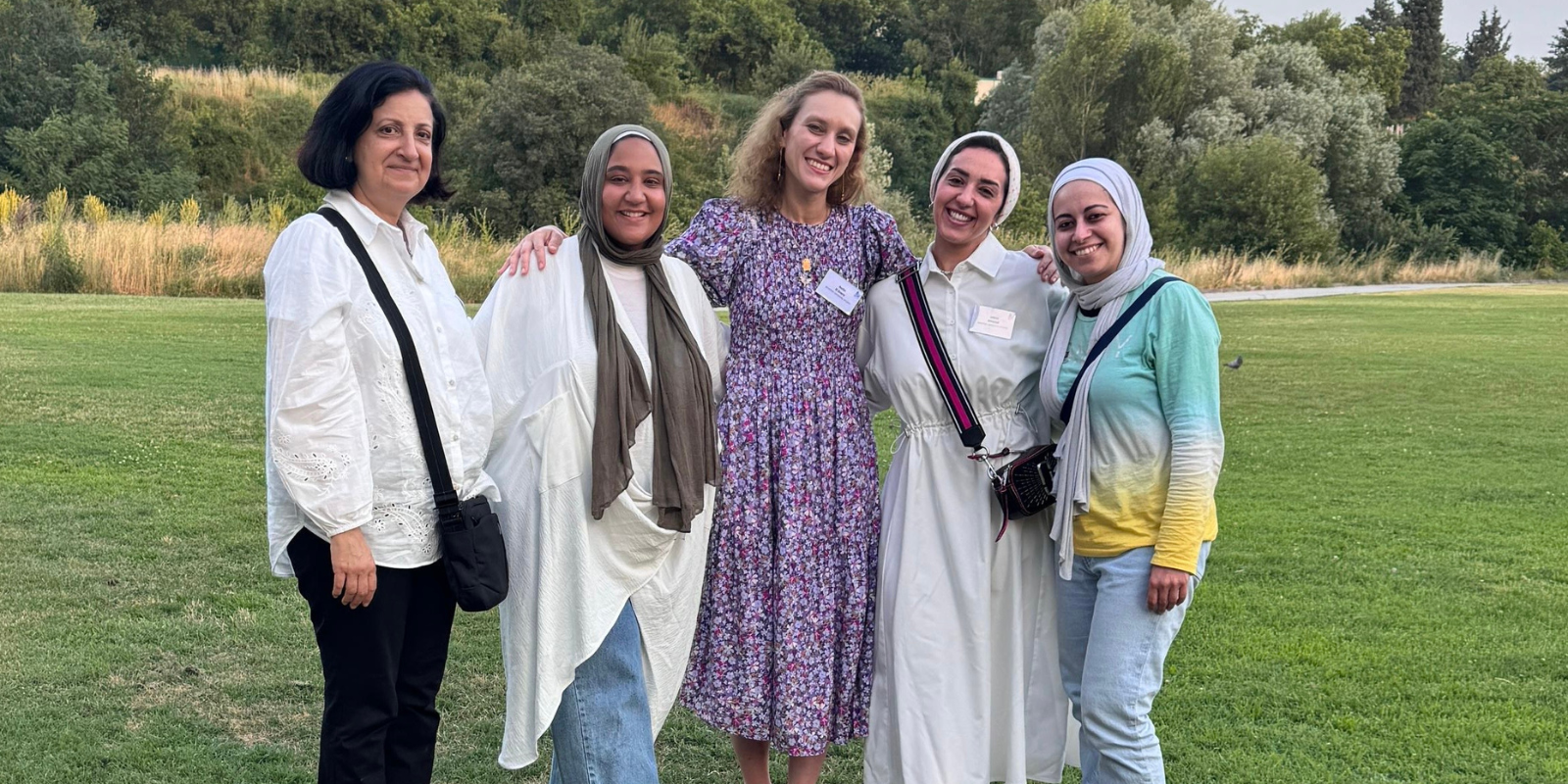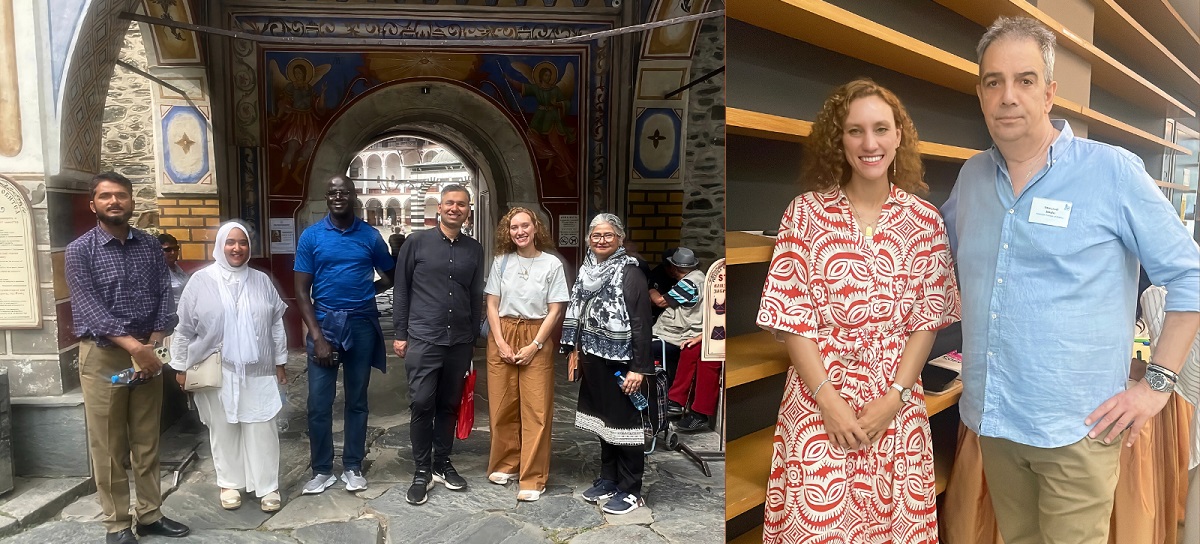We asked AUCians for their favorite books, movies, recipes and Cairo staycation recommendations for the holiday season. Here’s what they said.
Top Holiday Movies
Home Alone 1 and 2 
In Home Alone, Kevin McCallister is accidentally left behind when his family jets off for the holidays, and he transforms into a pint-sized action hero to defend his house from two bumbling burglars. In Home Alone 2: Lost in New York, Kevin takes his knack for chaos to the Big Apple, battling the same crooks in a toy store showdown while living every kid’s dream of a luxury hotel stay. It’s slapstick comedy meets holiday heartwarming feels!
The Holiday
Two women, fed up with their love lives, swap homes for the holidays—L.A. glam meets English countryside charm! Iris finds her confidence (and maybe love) with a sweet composer, while Amanda falls for a dashing widower with an adorable accent. It’s a festive reminder that sometimes, a change of scenery is all you need for a fresh start.
Klaus
In this magical, snowy tale, a selfish postman is sent to a remote village, where he befriends a mysterious toymaker named Klaus. Together, they bring joy to a dreary town and accidentally invent Christmas as we know it. With stunning animation and a big heart, it’s the perfect holiday hug.
 The Polar Express
The Polar Express
All aboard the most magical train ride to the North Pole! A young boy rediscovers his belief in Santa through a whimsical journey filled with hot chocolate, dancing waiters and a heartfelt message about the spirit of Christmas. It’s a story that warms the heart and reminds us that seeing isn’t always believing.
The Grinch
Whether he’s green and grumpy or digitally remastered, the Grinch is the ultimate holiday antihero with a soft spot for Christmas cheer. Living atop Mount Crumpit, he schemes to steal Christmas from Whoville but ends up learning that the holiday spirit can’t be stolen; it’s about love and togetherness. Bonus points for his adorable dog, Max!
White Christmas
This classic sparkles with old-school charm as two song-and-dance men team up with a sister act to save a Vermont inn. Between heartfelt moments and show stopping numbers, it’s a celebration of friendship, love and dreaming of snowy holidays. Bing Crosby’s “White Christmas” will have you swooning every time.
Top Books of the Year
For the best from AUC, check out our Holiday Picks from AUC Press: Gifts for Book Readers. If your book craving is still going strong, here are your picks of the best books you read this year.
- The Midnight Library by Matt Haig
- The Road Trip by Beth O’Leary
- The 7 Habits of Highly Effective People by Stephen Covey
- Shatter Me series by Tahereh Mafi
- Do Not Say We Have Nothing by Madeleine Thien
- Fledgling by Octavia Butler
- Dune by Frank Herbert
- Then He Sent Prophets by Mohamed Seif El Nasr
- Archer’s Voice by Mia Sheridan
- The Power of Habit by Charles Duhigg
- Zikrayat by Nayra Atiya
- Salt Houses by Hala Alyan
- Essentialism: The Disciplined Pursuit of Less by Greg McKeown
- Ikigai: The Japanese Secret to a Long and Happy Life by Francesc Miralles and Hector Garcia
- Reclaim Your Heart by Yasmin Mogahed
- It Ends with Us by Colleen Hoover
Your Staycation Recommendations
- Go for a felucca ride on the Nile
- Eat at restaurants: Zia Amilia, Buoy, Tama, Salt of Earth, Taboula, Abou El Sid, Tawlet Yvonne, Andrea and Babel
- Watch a movie at Zawya or other cinemas
- Visit Sheikh Zayed
- Explore Khan el Khalili, Khayamiya Cloth Market and Cairo Flea Market
- Walk around Moez Street, Korba and Al Darb Al Ahmar neighborhood
- Climb the minaret at Bab Zuweila
- Visit the beautifully renovated mosques and other spaces on the main street
- Book tickets to a show at the Cairo Opera House
- Take a weekend trip to Alexandria or Fayoum
- Visit the Christmas bazaars, there is always music and great Christmas vibes!
- Enjoy family festivities at HydeOut
- Go to Korba in the morning for a breakfast spot, sun soaking and a nice stroll after
- Go for breakfast and morning walks in Zamalek or Maadi
Your Special Holiday Eats
Your Recommendations:
- Cookies & brownies
- Green bean casserole by Sally’s Baking Recipes
- Gingerbread people
- Pasta with pink creamy sauce
- Hot chocolate with chocolate shavings (melt dark chocolate on the stove and add milk)
- All things cinnamon
- Mushroom & tomato soups
Your Recipes:
Sweet Potato Pie

Ingredients:
2 pounds sweet potatoes, 8 tablespoons (1 stick) unsalted butter, softened, 1 ½ cups granulated sugar, 4 eggs (room temperature), 1 teaspoon vanilla extract, 1 tablespoon Grand Marnier (not mandatory), 1 ½ teaspoons cinnamon, ½ teaspoon kosher salt, ½ teaspoon freshly grated nutmeg, 2 teaspoons freshly grated ginger, 8 ounces evaporated milk and two pie crusts
Instructions:
Roast sweet potatoes. Preheat the oven to 425 degrees, place potatoes in, roast for 20 minutes, reduce heat to 350, then continue roasting for an hour. (You can do this earlier in the day or even the night before.) When you’re ready to bake the pies, preheat the oven to 350 degrees. Remove the skin and place the potatoes in the bowl of a stand mixer, along with the butter. Mix until incorporated, then add the sugar. Mix again, then add in the eggs, one at a time. Add the spices, vanilla and orange liqueur; mix thoroughly then add the evaporated milk. Once everything is combined, pour the filling into the two prepared pie shells and bake for 50 to 55 minutes, checking at the 45 minute mark for doneness. Allow to cool, and serve with whipped cream.
Oven-baked Sweet Potato with Crème Caramel
 Ingredients:
Ingredients:
2 large sweet potatoes, 2 tablespoons butter, cinnamon for flavor, 1 packet of crème caramel powder (follow package instructions), Milk (as specified on the package), Sugar (as required by the package).
Instructions:
Prepare the sweet potatoes. Preheat the oven to 200° C. Wash and scrub the sweet potatoes, prick them with a fork, then place them on a baking sheet. Bake for about 45-60 minutes or until tender. Once baked, let them cool, then peel, add butter, cinnamon and mash until it’s a smooth texture, and set aside. Make the crème caramel: In a saucepan, heat the specified amount of milk according to the package instructions. Gradually add the crème caramel powder, stirring continuously until dissolved and slightly thickened. Combine: pour the crème mixture over the sweet potatoes batter and mix until all blended. Spread in a Pyrex, place in the oven for 25 minutes with top flame on. Let it cool, and drizzle the caramel sauce on top.






 The Polar Express
The Polar Express 


 Ingredients:
Ingredients:



